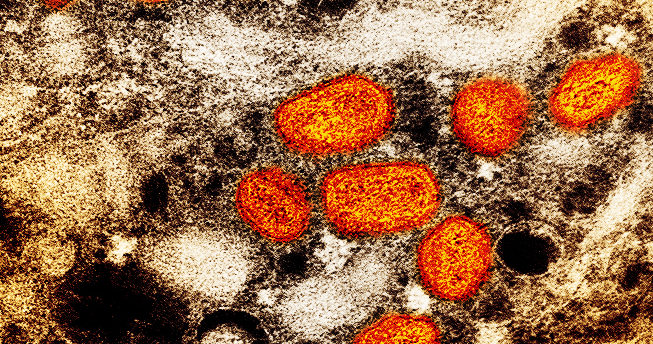The latest virus to reach the world’s attention is the outbreak of monkeypox. As we learned with the Coronavirus, the best way to prepare for and prevent this virus from becoming a major issue is to become informed and prepare for these cases in advance. Let’s look at the different monkeypox stages and how your facility can be prepared should this outbreak become worse.
What Are the Monkeypox Stages?
According to the CDC, someone with monkeypox will begin to show systems typically within three weeks of exposure. They are then considered contagious until their rash has healed, which is normally 2-4 weeks.
There is a range of symptoms someone may have, but overall, Monkeypox looks like your typical flu. Symptoms such as fever, chills, exhaustion, muscle aches, and respiratory symptoms are common. However, what really makes this virus stand out is the rash.
The rash seen throughout the monkeypox stages can look like blisters or pimples, might be itchy, and will eventually scab and fall off before healing. While this rash may be seen on areas such as the hands, feet, face, or chest, it is commonly found near the genital area.
How to Prepare for a Monkeypox Outbreak
As more and more cases begin to pop up across the country and the world, it is important for your facility to be prepared for these cases to show up near you. Although it is not extremely contagious, it can still spread through close contact. This makes it even more important to prepare in your facility as you will most likely come into contact with those suffering from monkeypox.
So, how can you prepare for these monkeypox stages? First, it is important to have patients in your facility wear masks if they have any flu-like symptoms. This can protect you and your other patients from close-contact exposure that may occur in your facility.
Additionally, it is important to clean frequently-visited areas to prevent the spread in your waiting rooms or open gathering areas.
Lastly, asking patients to answer questions about their health concerns before the visit may help you catch potential cases before they enter the facility so you can take necessary additional precautions.
Helping Patients Through the Monkeypox Stages
Communicating with your patients before they enter the facility can make all the difference in catching monkeypox cases before they arrive. For example, using Notivate’s E-Registration process allows you to ask your patients to fill out important information before their appointments such as registration forms, insurance information, and health questionnaires.
The information you gain from these health questionnaires can help your facility prepare for monkeypox cases. By asking patients if they have been in contact with anyone who has the virus and what their current symptoms are, you can get an idea of which of the monkeypox stages they are in.
While the monkeypox rash is the most accurate determination of whether or not someone has the virus, some people may see flu symptoms before a rash pops up. This is why checking for other symptoms in a pre-appointment health questionnaire is important.
Staying Informed
You can also use the Notivate Platform to inform the community about important outbreak and vaccination information. Using the Mass Communication feature allows you to quickly spread this information to all of your patients through text, call, or email. These messages allow you to do your part in the community and share with your patients how you are taking steps to prevent a further outbreak of the virus in your facility. It is also a great way to remind all patients of current precautions (such as hand washing and wearing masks) that your facility is taking so they are prepared before entering.
Overall, the best way to prevent the virus from spreading during all of the monkeypox stages is through preventative measures and staying up-to-date on the latest outbreak information. By doing your part, you can help stop the spread of monkeypox in your community.
If you would like to learn more about Notivate’s platform and how it can benefit your facility during outbreaks, request a demo today.

Recent Comments